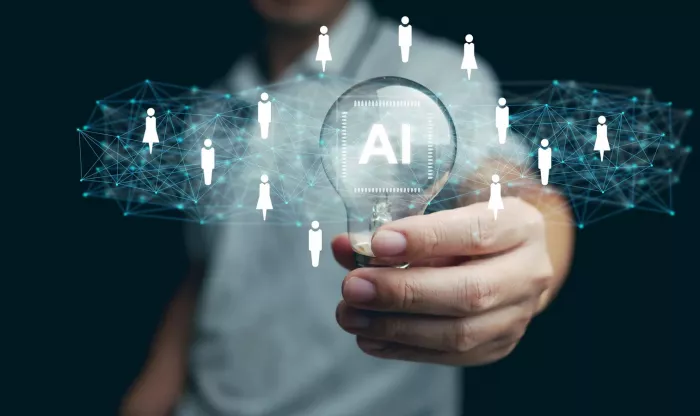
The Invisible Arms Race: AI in Recruitment Takes a New Turn
The landscape of talent acquisition is undergoing a radical transformation, fueled by the accelerating integration of Artificial Intelligence. What once promised streamlined processes and objective candidate assessment is now evolving into an intriguing 'AI-on-AI war,' where both recruiters and job seekers are leveraging advanced algorithms, challenging the very definition of authenticity in the hiring pipeline. This escalating technological arms race is forcing businesses to rewrite their playbooks and re-evaluate their approaches to identifying genuine talent.
For entrepreneurs like Roei Samuel, founder of networking platform Connectd, the speed and efficiency offered by AI in recruitment have been game-changers, enabling rapid scaling with 14 hires in just six months. Yet, this rapid adoption has unearthed a pressing concern: are the dazzling answers provided by candidates truly their own, or are they masterpieces crafted by sophisticated AI?
The Dual-Use Dilemma: AI for Screening, AI for Deception
Companies are increasingly relying on AI for initial candidate screening, automating resume analysis, and conducting preliminary video interviews. These tools promise to filter through vast applicant pools, identifying ideal matches based on keywords, tone, and even facial expressions. However, candidates, ever resourceful, are not far behind. They are now employing generative AI tools to craft compelling resumes, optimize cover letters, and even formulate eloquent, seemingly perfect responses for video interviews.
This creates a paradoxical situation. As recruiters deploy AI for AI candidate screening and efficiency, job seekers respond with their own AI-powered strategies to gain an edge. The result? A digital echo chamber where distinguishing between authentic human insight and algorithmically-generated perfection becomes an increasingly difficult AI hiring challenge. Samuel's observation of candidates' eyes subtly shifting during video calls hints at this underlying tension – are they reading from a script generated by an AI assistant?
Navigating Authenticity: The Future of Hiring with AI
The rise of AI vs AI job applications necessitates a critical re-evaluation of current interview practices. Traditional methods, once considered robust, may no longer be sufficient to unearth genuine skills, critical thinking, and cultural fit when candidates can outsource their eloquence to a machine. This doesn't mean abandoning AI in recruitment altogether; rather, it demands a more nuanced approach.
Recruiters must evolve, perhaps incorporating more spontaneous, scenario-based questions that are harder for AI to pre-process. Emphasis might shift to live problem-solving, collaborative tasks, and in-depth discussions that demand immediate human ingenuity and adaptability. Furthermore, the development of more advanced AI deception detection in interviews technologies may become a new frontier, designed to identify patterns indicative of AI-generated content, though this too raises ethical questions about privacy and surveillance.
Beyond the Bots: Reclaiming Human Connection in Hiring
Ultimately, the escalating AI arms race in recruitment underscores a fundamental truth: while technology can optimize processes, the core of hiring remains about human connection and understanding. The future of hiring with AI will likely involve a hybrid model, where AI handles the initial heavy lifting, but human judgment, empathy, and critical thinking take precedence in the final stages. Companies will need to invest in training their hiring managers to discern true talent from AI-enhanced facades, focusing on attributes that are uniquely human – creativity, emotional intelligence, and genuine passion. As this fascinating AI-on-AI war continues, the organizations that prioritize authentic human engagement will undoubtedly emerge as winners in the race for top talent.


Comments